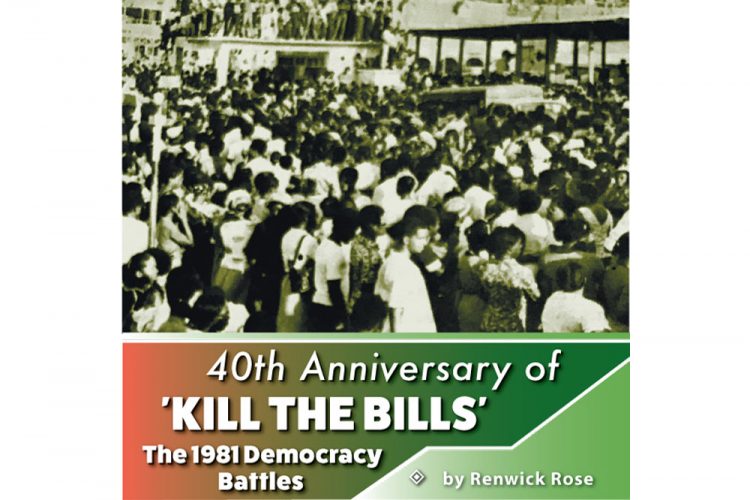40TH ANNIVERSARY OF 1981 BILLS (continued)

We are coming close to the completion of the series to commemorate the 40th anniversary of the epic Peoples struggle of 1981 which forced the government of the day to back off from passing two very repressive pieces of legislation, termed the ‘Dread Bills”.
Last week we outlined the first of those bills, the Essential Services (Amendment) Bill, which sought to restrict the right of trade unions to take industrial action in furtherance of their just demands in the interest of workers. It was introduced into the House of Assembly a week after one of the most militant May Day celebrations for years.
That Bill however, was accompanied by an even more sinister one which was aimed at taking away the rights and freedoms of not just workers and trade unions, but those of the population as a whole. It was entitled the Public Safety and Public Order Bill and struck at some of the fundamental rights and freedoms of citizens as enshrined in the Constitution.
In a response to the high level of mobilisation of the public and widespread dissatisfaction with conditions in the country, the Public Safety and Public Order Bill set out a number of draconian measures aimed at stifling opposition and silencing critics of the government. Police officers were to be authorised to search premises without a warrant, as well as to carry out the practice of stop and search in public.
It did not stay there. The Bill contained some notorious provisions which seem unbelievable by today’s standards. There was for instance a section (9) which went so far as to propose punishment for “intent”. Thus to have the “intent” to “excite disaffection against the government” was to become a crime, as was the intention “to raise discontent among persons or classes”.
Such was the draconian nature of this proposed bill that it had the effect of putting fire to a powder keg. The more people became aware of what was contained in these Bills, already read for the first time in Parliament, the more incensed they became.
Organisations of all types- trade unions, the commercial sector, farmers, churches, youth, women, a whole range of civic organisations, even the Bar Association, came out in opposition and called for the withdrawal of what by then became known as the “Dread Bills”.
It led to first, seven trade unions uniting under the umbrella of what was called the Committee in Defence of Democracy (CDD) set up in mid-May 1981. Such was the scale of the public outcry that this was rapidly expanded to include some 21 organisations which had an historic meeting at the Peace Memorial Hall on May 26 and decided to widen the scope of action, calling the broad-based network, the National Committee in Defence of Democracy (NCDD).
The battle lines were drawn as we shall see next week.









